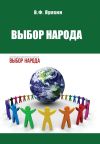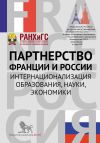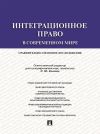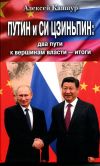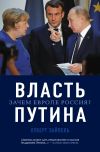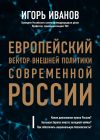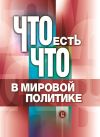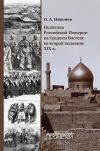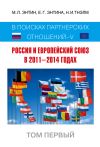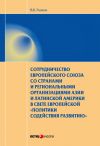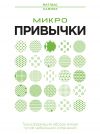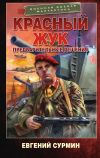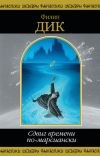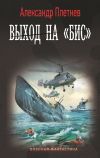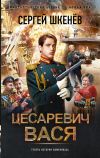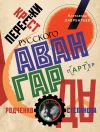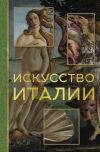
Автор книги: Екатерина Энтина
Жанр: Политика и политология, Наука и Образование
Возрастные ограничения: +16
сообщить о неприемлемом содержимом
Текущая страница: 17 (всего у книги 73 страниц) [доступный отрывок для чтения: 24 страниц]
The Russians and the Italians have a lot in common. Really, a lot. Just a few examples to support this point. We all love Italy. Madly. Wholeheartedly. The climate. The songs. The culture. The history. We all come from the grand and magnificent Roman Empire and we are its heirs in the civilizational sense.
We all value high the sense of humor. In literature and in everyday life. We cannot live without it. It is our magic wand. It helps us take the life easy. Ignore absurdity. Overcome misunderstanding.
Another thing that brings us together is the profound and healthy mistrust of the electronic media, all sorts of reports and sensational publications. We know how often they are sponsored. We have become convinced so many times that they contain a lot of lies, tendentiousness and high sounding nonsense.
Probably, the only exception is such channels as «Animal Planet”. Let us look at the BRICS, Russia, the EU and our relationship through its eyes.
Strange Political CreaturesEveryone has long become accustomed to identify Russia with its emblem. It depicts a two-headed eagle. One head looks one way. The other looks the other way. A little bit of imagination, and you see that one looks towards the East and the other towards the West.
For all these years Russia has been struggling to cope with the East and the West. The struggle between Westernists and Slavophils, liberals and statists runs through our entire history. That was so in the past; that is so now.
Yet the European Union is a much stranger political creature. It has even 31 heads. The accession of Croatia will make it 32. It is 33 including the eurozone. Twenty-seven (28) of them are presidents and/or prime ministers of member states. The other five are presidents of the European Council, the European Parliament, the European Commission, the eurozone plus the High Representative for Foreign Affairs and Security Policy.
No matter what, the EU manages to make efficient decisions and to ensure their implementation. That does not happen sometimes, judging by the permanent crisis of sovereign debts from which member states are still unable to recover. The December agreement reached at the European Council meeting in Brussels at the UK expense gave a measure of hope. But it was not complete.
Against this backdrop the BRICS looks like a cute baby dragon. Just born. With five heads. Our folklore is rich in dragons. According to tales and legends, the good natured monster is special because each of its heads lives its own life. Each has its own outlook. Its own preferences. It is very hard for them to reach consent. But that happens sometimes. And when it does, then…
The BRICS is a wonderful creature. It was a fantasy at first. A scientific term minted. In reality there was no such structure. Now it not only exists but also develops swiftly. It accumulates negotiating formats. It starts to have a mounting influence on world processes.
A token of further strengthening of the BRICS is that it gives a lot to its members. In the respect of influence, coordination of positions and approaches, and resolution of contradictions, among them very acute and old impediments of the past. It would be obviously premature to bury the BRICS. It has just begun to show its value.
Does Russia Belong to Predators?All animals on our planet – the international community – may be divided into three groups. The first group unites those who eat the others. They are well known. The second group is those who are eaten. Libya was one of the latest victims. Some others will be next. Finally, the third group is herbivores, which are too big to serve as a lunch or a dinner to predators. Even in a band. Most likely, Russia belongs to that group. I would recommend no one to give up on Russia.
True, a substantial part of the unpleasant criticism it hears is quite founded. It is about the incomplete reforms, flaws in the democratic system, low efficiency of governing bodies and corruption. But only a part. Too much critique is sponsored. The sponsors neglect an objective analysis of the misfortunes, which fall to our lot, and the achieved, although modest, results.
Russia is a huge country. Very rich. In the geographic sense. And from the point of view of mineral resources. It has a colossal potential. Natural. Human. Scientific and technological.
Alas, de-industrialization and degradation to lumpens in the country are fait accompli. But we must not forget that Russia retains the leading positions in a number of promising areas. Such as space exploration, atomic energy or production of certain types of armaments.
Remarkably, many expensive components of Boeings are made in Russia. This is also the location of some of its design bureaus. Software developed in Russia is used by the largest banks of the world and so on.
Besides, Russia has turned into the largest market consuming commodities from EU member countries. From foodstuffs to the most expensive drugs. Suffice it to say that Russia is the biggest market for German automobile makers after Germany.
It looks like the county has no coherent and officially approved concept of economic development. Strategy 2020 can be called such by a long stretch. Still there are strategic guidelines in certain areas. Let us take the energy sector for an example, bearing in mind the significance trade in energy resources has for Russia-EU relations.
The era of extremely cheap crude is over. USA transformation into its biggest producer doesn’t change anything. Future price wars will not last more than one or two years. Crude reserves are limited. Production costs go up. Crude makes too big a contribution to climate change. It will have to be replaced. In the future with renewable resources. In the next few years – during the transitional period – with natural and, to some extent, with shale gas.
Natural gas will gradually become exchange liquidity. Everyone will need it. Large trucks will be using gas. That is an environmentally friendly fuel. If the forecast comes true, Russian producers will find themselves in a highly advantageous position: Russia has a third of world natural gas reserves.
Russian companies intend to use the growing demand in full. They are diversifying means of delivery. They are creating new transit corridors. They are entering new markets. First of all, Southeast Asia. By 2025–2030 the markets will have a totally different configuration.
This is just one element of the strategy. Others include energy saving and an increase of domestic prices. Since 2009 the country has been living by a new law, which forces large consumers to save energy. So far it may be described as a dormant law – that is a consequence of the crisis. But it will start working soon.
The long-term program of the increase of domestic prices coordinated by the government and the largest producers implies a gradual leveling of domestic and world prices. The goal is to weaken the dependence on foreign markets, to strengthen positions of domestic companies and their competitiveness, and to make operations on the domestic market as profitable as exports. There is one more imperative – to deepen the processing and to build up the degree of mechanization.
So, if the world does not fall into another spin of economic crisis and worthy management is provided, Russia will have trump cards on its hands. From the point of view of investments in economic diversification. And, equally, from the point of view of the game on the global and regional markets.
Russia, the Russian two-headed eagle, seems to have rather strong wings. It will spread the wings. Anyway, it can. And long distances will be a child’s play to it.
Can «Hoggies” Fly?There are more questions now to another wonderful political creature from the animal world – the European Union. The protracted crisis of sovereign debts, the downgraded rating of a large group of member states and the slow adoption of political and economic decisions unveiled all weaknesses of the European project.
An increasing number of experts, particularly in Southeast Asia, have doubts whether the EU can continue to fly high. The PIGS abbreviation, which sounds the same in Russian and in English, is a perfect illustration to these doubts.
It is beneficial to Russia that the Union can. The EU is our most reliable partner. It is a sales market and a supplier of a broad range of goods. It is a leading investor of the Russian economy. And not only.
Russia is also Europe. It is a part of our common culture. Our common history. We are impressed with the EU socioeconomic development model. Its collapse must not be allowed. That would be catastrophic for entire Europe. Not only for the EU.
It would be appropriate to recall in this context that the economic growth rates in Russia may be much smaller than in other BRICS countries. But they are still much higher than in the EU. The growth was approximately 4.6 %-4.8 % in 2011. The EU is headed towards recession. So humiliating opinions of Russian events and deliberately tendentious forecasts can hardly do good to the EU and its member states.
Both Russia and the EU would have gained a lot from the authentic strategic partnership. In all spheres. Foreign policy. Economy. Home security. Science, culture, education. The partnership would have boosted competitiveness of the sides.
In the multi-vector foreign policy of Russia the EU holds a very important place. It is almost central. Without any damage done to Russia’s relations with Eurasian Union countries, the United States, China, and India and so on.
However, the strategic partnership requires mutual respect. Mutual account of interests. Equality. If that is done, Russia and the European Union will have a much brighter future.
The flight will be much steadier then.
Unpretentious DiscussionParticipants in the discussion, which followed the report presentation and main speeches, immediately broke into three camps. The first comprised ingrained skeptics and inveterate fans of alarmist forecasts.
In their view, the critical attitude to Russia is more than justified. Especially as the potential of Putin’s political young growth has already been spent. The political and economic course held through the most of the past decade led the country into an impasse. Russia has another term of stagnation, manual control, immobilism and uncertainty in store.
To be objective, we must say that they made a similar dress-down analysis of the Western world and globalism at large. They said the Russian situation could be described in stagnation terms while the Western world was simply going to ruin.
The appearance of global markets, global economy and global society had strictly negative consequences. Such as the uncurbed spreading of crisis phenomena, the declined controllability of world processes and the chaotic international relations.
Hence, Russian problems should be viewed comparatively rather than absolutely. The opinions must be kept in mind while building the relationship.
The second camp united staunch optimists and idealists. They attacked the European Union instead of Russia or the BRICS.
The main thesis is that European integration has partly spent its potential. It is out of breath. It has encountered insurmountable obstacles. At least, that is so in the short-term prospect. Because of the sovereign debt crisis, the slowing economic growth and the emerging erosion of the foundation of social peace. Probably, also because of numerous mistakes in the elaboration and fulfillment of political decisions.
A key one is the underestimation of the potential of Russia and the BRICS and the contempt for the rest. The erroneous guidelines must be changed. Preferably quickly.
The most representative group was formed by realists and pragmatics. The same as the others, they stated the deepening anarchization of the modern world. They pointed to the qualitatively new problems faced by the EU and the Western world as a whole.
Besides, they gave a balanced analysis of the development dynamics of the Russian Federation. They accentuated the colossal unclaimed potential of the Russia-EU partnership. They called for developing the relations for the benefit of both sides.
We would side with this approach. True, we should put the emphasis on factors which unite instead of separate us. Then we will do much better. In the sweeping modernization. And in the resolution of global problems.
We may not succeed immediately. But we have to begin at some point. There are more prerequisites for that now than ever. It is simply necessary to see them. And to have a wish.
Then our “Animal Planet” will be more humane. There will be more food. Animals will be better groomed. And the division into the eaten and the eaters will stop being topical.
Глава 5.12. Будущее развития отношений между Россией и ЕС: теории и концепции
Многочисленные провалы в отношениях между Россией и ЕС, их непоследовательный и противоречивый характер объясняются действием ряда факторов. Важнейший из них – отсутствие видения будущего этих отношений как у Брюсселя, так и у Москвы. За все годы существования независимой России ни та, ни другая сторона так и не смогли выработать стратегии их развития и формализовать ее. Принимавшиеся документы не в счет. Они решали узко прагматические задачи и до уровня стратегий никак не дотягивают. Урон от ее отсутствия очень велик. Оно дезориентирует всех – государственные и наднациональные органы, действующих политиков, бизнес, общество. Отношения лишены горизонта планирования.
Результат – сотни, тысячи упущенных возможностей достичь большего в политике, экономике, социальном развитии, международных делах. Неоправданные политические решения. Жесткая конкуренция, от которой страдают интересы обеих сторон (постсоветское пространство, энергетика, ограничительные практики, закрытие целых отраслей экономики для иностранных инвестиций, квотирование импорта и т. д.). Игра с нулевой суммой. Проволочки с выполнением достигнутых договоренностей. Подмена истинного партнерства риторикой о партнерстве.
Вместе с тем, разработкой стратегического видения построения отношений между Россией и ЕС занимались большие группы ученых и практиков. Эволюция в подходах, которых они придерживались, отражает смены вех во внешней и внутренней политике партнеров, необходимость отталкиваться от реальности, а не приукрашивать ее, общее разочарование ходом и перспективами сотрудничества.
В начале 1990-х господствовали упрощенные представления о том, что Россия быстро преодолеет последствия распада СССР, легко переведет плановое хозяйство на рыночные рельсы, семимильными шагами пойдет по пути демократического строительства. Как следствие этого принципиальные различия между Россией и ЕС (именно различия, а не противоречия) будут сняты. Конвергенция откроет путь к интеграции. Осуществление же интеграционного проекта пойдет либо само собой – будет произрастать из политической близости и действия экономических императивов. Либо будет оформлено институционально.
В это сейчас трудно поверить, но, работая над СПС в 1993–1994 годах, российские переговорщики добивались включения в преамбулу договора положения о перспективе вступления России в ЕС. До сих пор ультралиберальный фланг российской элиты не расстался с надеждой на подобное развитие событий пусть не в среднесрочном плане, но хотя бы через 10–15 – 20 лет (то, что ЕС преодолеет нынешние трудности, при этом не ставится под сомнение).
Такой выбор в то время был вполне логичен. Он даже казался единственно возможным. Россия строила новый для себя тип хозяйства и общества и нуждалась в поддержке и ориентирах. В экономическом отношении ЕС являлся маяком. Отказ от курса на сближение и самое тесное сотрудничество с ЕС означал самоизоляцию России. Уход из Европы. Сдачу ЕС всего стратегического пространства.
Развитие событий пошло по другому сценарию. Россия погрязла во внутриполитических противоречиях. Кризис затронул ее гораздо сильнее, чем ожидалось. Реакцией на псевдодемократическую анархию и разруху стала националистическая волна. Европейский выбор страны оказался микшированным.
Со своей стороны, ЕС, ввиду трудностей, переживаемых Россией, и отсутствием альтернативного проекта, пошел по пути территориальной экспансии, направленной фактически против нее. Теоретическим оформлением этого курса стала концентрическая картина мира, освещенная бывшим председателем Европейской Комиссии Жаком Делором. В центре – старый ЕС в составе 15 государств. Это первый круг. Второй круг – Центральная, Восточная и Юго-Восточная Европа, которая должна была войти в ЕС. Третий – ближнее соседство нового ЕС, состоящее из стран, ориентирующихся на ЕС, но не имеющих шансов на вступление. Четвертый – все остальные. От включения в СПС положения о возможности приема России в члены интеграционного объединения ЕС категорически отказался. Паллиативом стал невразумительный пассаж о возможности открытия переговоров по ЗСТ, который никаким ориентиром для будущего развития отношений служить не мог.
В путинский период, когда централизация власти в руках Кремля и нефтяная рента позволили добиться политической и социально-экономической стабилизации и решить стоящие перед страной краткосрочные экономические задачи, парадигма позиционирования России в мире изменилась. Эпатажная формула «Россия встала с колен» означала, что политическая элита поверила в то, будто бы страна сможет развиваться опережающими темпами по сравнению с другими, и усилить свои геополитические позиции.
Отсюда превращение идеи третьего пути в официальную доктрину страны. Мол, мы такие же, как другие, но в то же время и несколько иные. Другие нам не указ. Отсюда ставка на конституирование страны в самостоятельный центр силы в международных делах или по крайней мере претензия на проведение такого курса в отношениях с другими мировыми игроками.
Но самоидентификация в качестве самостоятельного центра силы автоматически означала равноудаленность в геополитике и акцент на самостийность в вопросах внутреннего регулирования рынка. Она означала также поиск альтернативных проектов, которые можно было бы противопоставить другим центрам силы, в том числе ЕС. Ими стали Шанхайская организация сотрудничества, ЕврАзЭС, в дальнейшем Таможенный Союз, Евразийский Союз и т. д.
В этих условиях слова о привилегированных отношениях с ЕС, сближении с ЕС, стратегическом партнерстве лишались своего содержания. А европейский выбор России стал ограничиваться направленностью экспортно-импортных операций, эмиграции из страны, турпоездок и ввоза-вывоза капитала.
Со своей стороны, ЕС, по большому счету, было не до России. Он решал эпохальную задачу объединения Европы. Оно стало вторым крупнейшим свершением ЕС после франко-германского примирения через интеграцию. Потом пытался нивелировать цивилизационный шок, вызванный неподготовленным скачкообразным расширением, и преодолеть конституционный кризис, или, иначе, кризис управляемости ЕС.
2008 год нанес сокрушительный удар по всем представлениям, культивировавшимся в путинский период. Выяснилось, что за 2000-е годы Россия окончательно растеряла свои конкурентные преимущества. Конкурентоспособность российской экономики, несмотря на высокие темпы роста, катастрофически упала. Глобальный экономический кризис показал, что Россия не имеет достаточных ресурсов для того, чтобы выступать в качестве самостоятельного центра силы. Политическая стагнация и отсутствие стимулов к модернизации – что третий путь носит тупиковый характер. Война в Закавказье, одностороннее признание Россией Южной Осетии и Абхазии, замалчивание инициативы заключить Договор о европейской безопасности, изоляция России в ОБСЕ – что у нас нет настоящих союзников. Совместная работа с ЕС по выходу из глобального кризиса – что у сотрудничества со странами ЕС и ЕС в целом, колоссальный потенциал.
Реакцией на все это стало возрождение идей совместного построения с ЕС Большой Европы или, иначе, Союза Европы. Наиболее последовательно они изложены в докладе рабочей группы Валдайского форума «Alliance of Europe». В нем показано, насколько общество и экономика России и ЕС взаимосвязаны, насколько много они могли бы получить от сближения, и обосновывается курс на реализацию совместного интеграционного проекта.
В официальной политике курс на сближение с ЕС получает выражение в установке на тесное сотрудничество с теми странами развитой демократии, которые могут послужить внешним фактором модернизации России. Фактически это ЕС и страны ЕС. Россия и ЕС выступают с инициативой «Партнерство для модернизации», согласовывают рабочий план ее реализации и приступают к его осуществлению. Пока ПДМ пробуксовывает. Но у него огромный потенциал. И, видимо, главное – у него нет альтернативы.
К рубежу 2012 года Москва и Брюссель подошли не в лучшем виде. Они переживают ряд системных кризисов. Их позиции в мире ослабли. Фактор неопределенности в развитии континента, напротив, усилился. В этих условиях, очень похоже, Россия хотела бы предложить ЕС актуализированную версию совместного интеграционного проекта. Ею могла бы стать программа формирования единого, общего или какого-то иного совместного экономического пространства между Евразийским союзом и ЕС. Это очень интересная перспектива. В Брюсселе к ней пока присматриваются. Но для начала нужно, чтобы Евразийский союз состоялся, чтобы он стал успешным.
Рецепт хорошо известен. Искоренить коррупцию. Резко повысить качество работы правоохранительных органов. Снять разрыв между нормой права и ее применением. Обеспечить уважение частной собственности. Создать современную инфраструктуру. Предпринять жесткие меры по демонополизации общенационального, регионального и локальных рынков, дав возможность утвердиться свободной конкуренции. Предложить стимулы модернизации. Предоставить доступ к длинным деньгам. Выправить инвестиционный климат. Повсеместно пестовать ростки уважительного отношения к людям – в повседневной жизни и в конфликтных ситуациях. Осуществить декриминализацию наказания за экономические правонарушения. Провести налоговую/финансовую амнистию. Тогда люди, профессионалы и капиталы начнут возвращаться. Как в начале 2000-х. Качество жизни пойдет вверх. В странах Евразийского союза возникнет современный конкурентный климат в политике. А политическая воля идти вперед по пути интеграции, стабильный и предсказуемый экономический курс, помноженные на действие экономических императивов и предпринимательскую активность сделают его успешным. Тогда и сближение двух союзов и возникновение общего экономического пространства станут само собой разумеющимися.
Правообладателям!
Данное произведение размещено по согласованию с ООО "ЛитРес" (20% исходного текста). Если размещение книги нарушает чьи-либо права, то сообщите об этом.Читателям!
Оплатили, но не знаете что делать дальше?